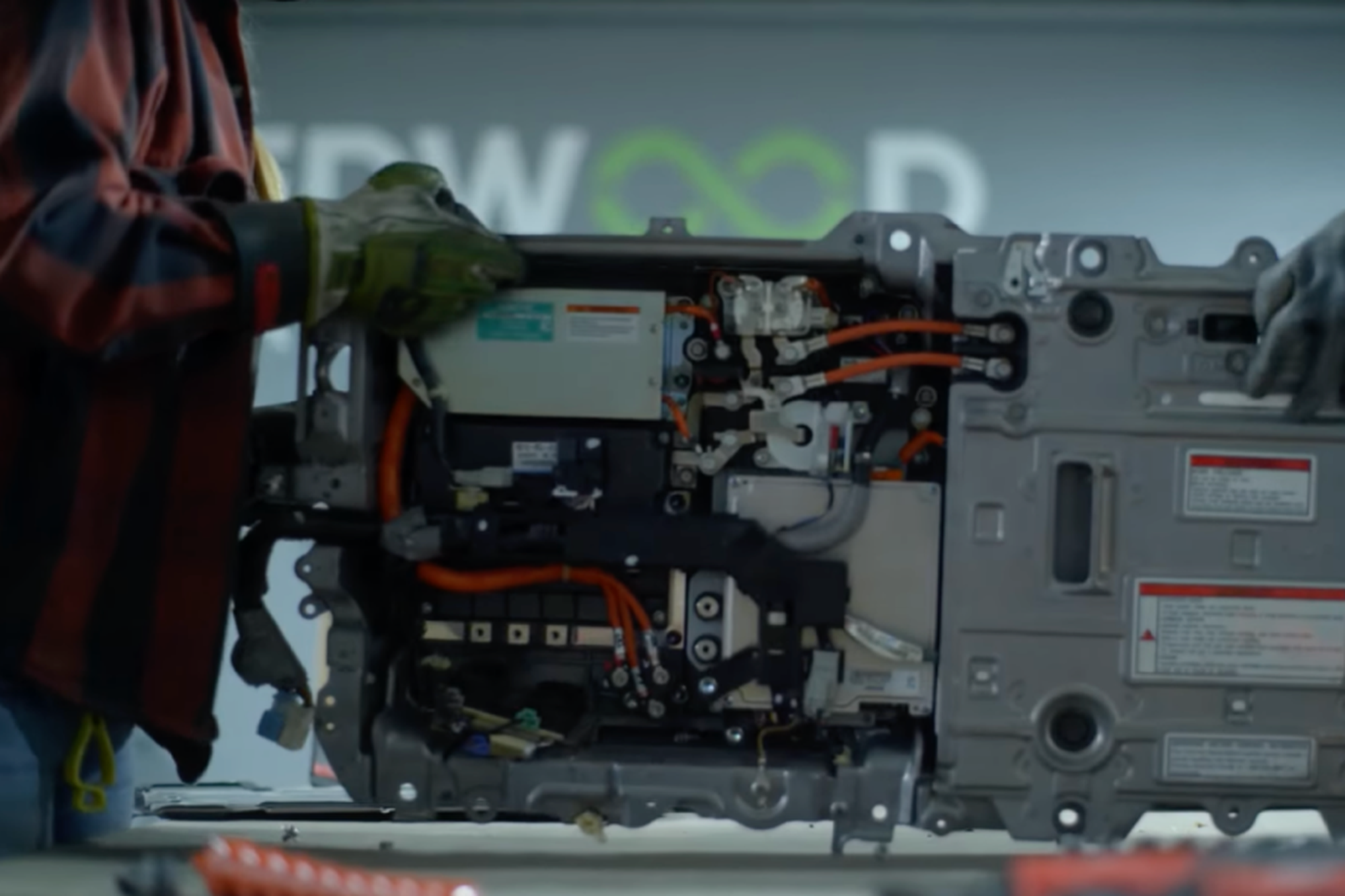
Sep 22, 2021
Redwood Materials and Ford Motor Company Announce Strategic Relationship
Read post

Rotary International formed the Environmental Sustainability Rotary Action Group (ESRAG) to focus on and support environmental projects, globally. In 2021, a member of the Los Altos Rotary Club and an ESRAG Board member, Clari Nolet, reached out Stanford University Professor, Sally Benson, for ideas on how they could create community-based projects to make the greatest environmental impact.
At the time, a dozen professors and PhD students at Stanford had been working with Redwood on a lifecycle analysis of lithium-ion battery recycling, and throughout their many meetings together, Redwood had raised the issue of consumer device collection. Redwood had estimated that the largest lithium and cobalt reserves in the western hemisphere were locked away in America’s junk drawers. If they could figure out how to collect more of these devices, the world’s dependency on virgin-mined material would be lessened. The public’s desire to clean out these drawers was already apparent as Redwood had begun receiving hundreds of packages filled with old rechargeable devices that individuals had mailed the company. As a result, Redwood was focused on building out a program to educate, engage with, and create better pathways for the public to recycle lithium-ion batteries and devices that couldn’t be sent to traditional waste and recycling channels. When Rotary reached out to Stanford it seemed fortuitous; The Los Altos Rotary Club and Redwood were quickly put in touch and our first collection events were born with the Rotary Clubs of Los Altos, Cupertino and San Jose.
Batteries are in nearly every consumer device. From cell phones to laptops, e-bikes to scooters and electric toothbrushes to vacuum cleaners and power drills, our dependency on rechargeable batteries is skyrocketing. And, as more electric vehicles hit our roads (now at 5 percent market penetration in the US and growing rapidly), we’ll need more and more batteries. Lithium-ion batteries are a phenomenal technology that can propel us into a clean energy and transportation future. But as demand increases exponentially, batteries and the materials inside them could become a gating factor to a sustainable future. All lithium-ion batteries are made up of varying amounts of critical minerals like cobalt, copper, nickel, and lithium. Whether a laptop or an electric vehicle, lithium-ion batteries source the same elements on the periodic table. What's perhaps even more incredible is that these metals can be recycled almost infinitely; metal atoms don’t change or degrade, and so old devices can become new EVs without any trade-offs to performance or battery life. Yet, today, only 17 percent of e-waste and less than 5 percent of lithium-ion battery containing devices get recycled. This creates a tremendous opportunity to “urban mine” old products and build new, sustainable products while offsetting our need to terrestrially mine.
Lithium-ion battery demand is projected to increase by 500% in the coming years. We cannot, as a society, recycle our way to such an aggressive demand increase: the stark reality is we will need to mine new materials in order to create climate-change-combatting products. However, once deployed, these products will enter a cycle of nearly infinite recyclability. Redwood is focused on creating this closed loop supply chain for battery components, built from as many end-of-life batteries as possible. Our technology can recover materials from small consumer devices the same way that we recover materials from old hybrid and electric vehicle batteries through an incredibly efficient and sustainable process (more from Stanford on this soon!)
Earlier this year, Redwood and Rotary launched our collaboration, hosting joint community events across the country where we’ve aimed to educate, engage, and create convenient recycling pathways for consumers to recycle their household lithium-ion batteries and devices. For over 100 years, Rotary has united people from all continents and helped them take action to deliver solutions to the world’s most persistent problems. With over 1.4 million members and more than 46,000 clubs, Rotary has the power to create impactful change which we’ve experienced already, together. From our own backyard in Carson City, Reno and Incline Village to the Atlantic shores of Cape Cod, Boston, and New York and in the heart of the consumer device world in Silicon Valley – together, we’ve already met thousands of individuals and collected tens of thousands of pounds of lithium-ion batteries. Dozens of additional events are planned around the country later this year

Now we’re kicking the partnership into high gear as we enter into a national collaboration with ESRAG to create materials that can be disseminated to Rotary Clubs everywhere, so they increase the impact through broader education and collection of batteries.
As our work with Rotary has grown, so has Redwood’s Consumer Recycling Program; our mission is to make consumer recycling frictionless so that the public can responsibly recycle and increase the sustainability of all our products. This means removing any fees and barriers, hosting convenient events, deploying drop off boxes and direct-ship programs and working with schools and universities to increase education and collection.
Redwood grateful for this partnership which brings us closer to closing the loop on lithium-ion batteries, for electric vehicles as well as all consumer devices, helps spread awareness and create the tools for lithium-ion recycling, decreases our reliance on mining, lowers the costs of clean technologies and increases the sustainability of all products.